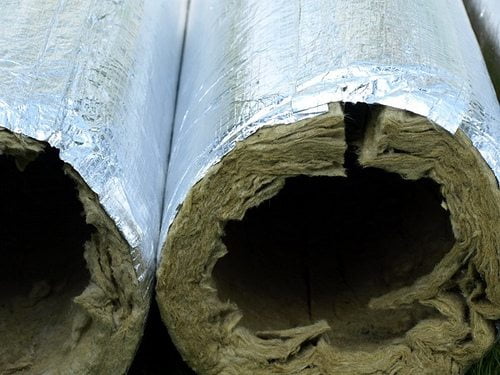

Economy
Ambitious energy efficiency targets are key to combating climate change
In the race towards a low-carbon future, global leaders cannot ignore the many benefits of energy-efficiency measures for the environment and the economy, writes Susanne Dyrboel of ROCKWOOL International.
Last week’s UN climate change summit attracted huge publicity and saw China announcing that it will pledge to address emissions –and work with the US to agree new binding targets.
The move has been hailed by UN secretary general Ban Ki-moon as ground-breaking and in his closing remarks he stated, “never before have so many leaders gathered to commit to action on climate change“. But we still need to see how this will materialise in real actions.
While the support shown in New York last week from the 120 heads of states for more stringent and binding climate change targets may seem a positive foundation for COP21 in 2015, it is of great concern to see how little appetite policymakers continue to have for using energy efficiency as the key tool for guiding climate policies.
It is well known that energy efficiency is the most effective means available for tackling climate change but it is also a highly effective way to stimulate economic growth. Energy efficiency must therefore be the obvious first choice – and still our political leaders continue to argue about the high upfront costs without focusing on the significant long term gains. It should be a “default condition” always to aim for utilising the full economic potential of energy efficiency.
In Europe we have no right to point fingers at other regions – we only need to look at what is happening right now in our own territory. In July, the European Commission proposed a new energy savings target of a meagre 30% by 2030. And this despite its own impact assessment showing that 40% savings is feasible and will deliver many more benefits (over a 30% savings target) in terms of GHG emissions reduction, jobs, energy security and competitiveness. While a 40% energy savings target in 2030 will deliver 4.5% growth in GDP a 30% energy savings will only deliver 1% GDP growth.
On energy security, recent European Commission analysis shows that for every 1% increase in energy savings, EU gas imports will be reduced by 2.6% – underlining the very significant energy security benefits a 40% energy savings target can deliver.
If the Heads of States in Europe in their final vote on October 23-24 fail to raise this bar it will be a huge missed opportunity to drive demand for energy savings in the coming decade. It leaves a massive energy savings potential untapped, and leaves unrealised many investments that would increase economic growth, provide new jobs, improve EU competitiveness, reduce import dependency and fight climate change. A target of 40% energy savings by 2030 must be set if we are to keep the lead position that Europe has had in the past on energy efficiency.
Last month the International Energy Agency (IEA) launched a report “Capturing the Multiple Benefits of Energy Efficiency” describing energy efficiency as the world’s ‘first fuel’ and stated that ‘the uptake of economically viable energy efficiency investments has the potential to boost cumulative economic output through 2035 by USD 18 trillion’ a sum that is larger than the current size of the economies of the US, Canada and Mexico combined.
While some fear the up-front costs of improving energy efficiency across the globe will be high, the potential benefits are huge, and these up-front costs also pale in comparison with the investment needed in new energy infrastructure to meet growing energy demand. An economic and environmental cost that could be significantly reduced simply by using less energy.
The IEA concludes that over 80% of the global savings potential in buildings is ignored and will continue to be so unless our policy makers start to integrate the multitude of ancillary benefits from energy efficiency into their strategic planning. This is a ridiculously wasteful use of the world’s resources as well as of our public money!
World leaders attending the UN Summit in New York recognised that countries, businesses and individuals are unlikely to act on climate change without binding targets.
There are critical voices who say that setting high energy efficiency and emissions targets is bad for economic growth and business but the Commissions own assessment, the IEA report and numerous other expert viewpoints show this isn’t necessarily the case.
Binding targets provide industry with security for investment and stimulate innovation and development of the green economy.
The world’s sustainable business community is strong enough and innovative enough to adapt to a higher and more ambitious energy savings target and to develop and offer systems and technologies that radically cut the amount of energy used without compromising quality of life or business activity.
We also know that ambitions do make a difference. In the EU, the 2020 target for energy savings has helped create a market for more efficient buildings that has put the EU at the forefront of green building technology, and enabled businesses to viably invest in green technology. It has allowed many European businesses to become sector leaders at the point when other countries are now looking to follow the EU’s lead and improve energy efficiency.
Having an energy savings target in place for 2020 hasn’t been bad at all for the EU’s economy on the contrary it has been a positive driver for innovation and green growth.
Susanne Dyrboel (@SusanneDyrboel ) is group public affairs manager of ROCKWOOL International. ROCKWOOL is the world’s leading producer of stone wool and among global leaders within the insulation industry.
Photo: Chris RubberDragon via Flickr
Further reading:
Role of energy efficiency greatly underestimated, says energy body
Energy efficiency helps households battle rising utility costs
EU Commissioners announce 30% energy savings target by 2030
Just three EU countries on track to meet energy efficiency targets































